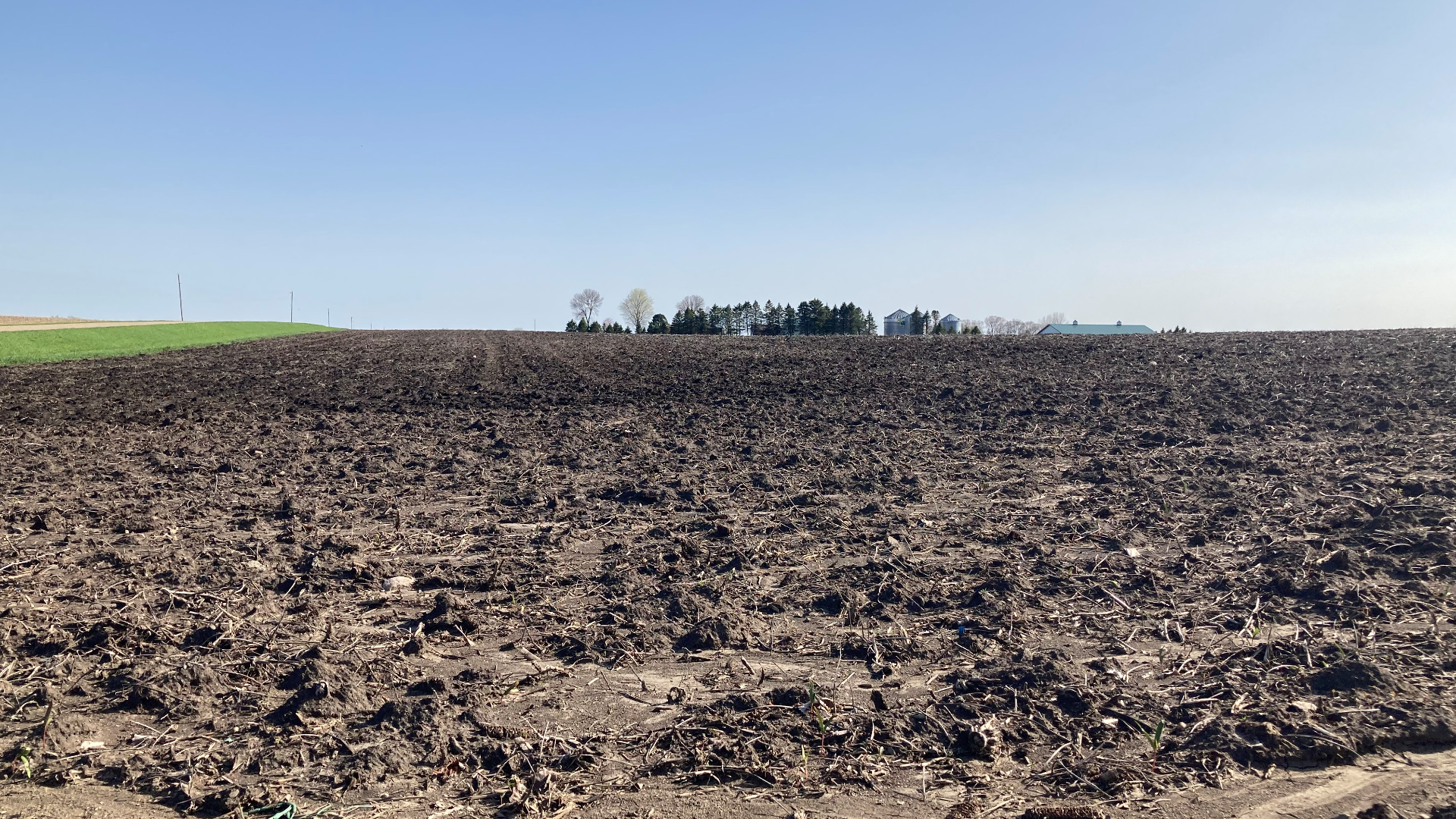HOWARD LAKE, Minn. — More wet weather is making it hard for farmers across the state to start planting their crops. Some of them say they're at least 10 days behind.
"I'm hoping we can dodge the rain events for the next couple days," said longtime farmer Brad Dehn. "If we get upwards of an inch, inch and a half, we could be delayed another week."
He says a cool and wet April, coupled with recent storms, means he can't plant corn or soybeans yet on his 2,400 acres of fields outside of Buffalo in Wright County.
"I’m a little bit nervous about what could happen," said Dehn. "Our window for optimum is fast closing."
He says his family needs about 10 days to complete their planting, which they typically finish by May 20.
Plant the seeds now, he says, and they would only rot in the still damp soil. Instead, his machines are left to sit until at least a three-day, consecutive stretch of sun and wind can help dry things out.
That would help the rest of the state, too.
In its latest report, the Minnesota Department of Agriculture found as of this week, only 9% of corn has been planted, compared to 48% last year. Soybeans are fairing even worse at just 2%, compared to 59% last year.
"The later you get, the more you cut into your yield potential and, of course, profitability with it," said Dehn.
He could still switch to seeds that mature faster, along with choosing to plant less corn and more soybeans, which can be planted later. Or if it's too late, he could cut his losses that insurance might cover.
"It's not an easy profession, it's a lot of work," said Dehn.
Despite the unknowns he said, Mother Nature makes for what's still a rewarding profession.
"The weather will straighten out eventually," says Dehn. "It's just a matter of being patient and saying prayers, I guess."
Farmers are also getting paid more for their crops than ever before. Corn, for example, is up to $7 a bushel when it's usually half that, according to Dehn.
However, the kernels themselves, fertilizer and diesel prices are also up, too.
And if there are production problems this season, that will mean fewer crops for livestock feed and food at the grocery store, potentially pushing up prices for you even more.
Watch more local news:
Watch the latest local news from the Twin Cities in our YouTube playlist:

